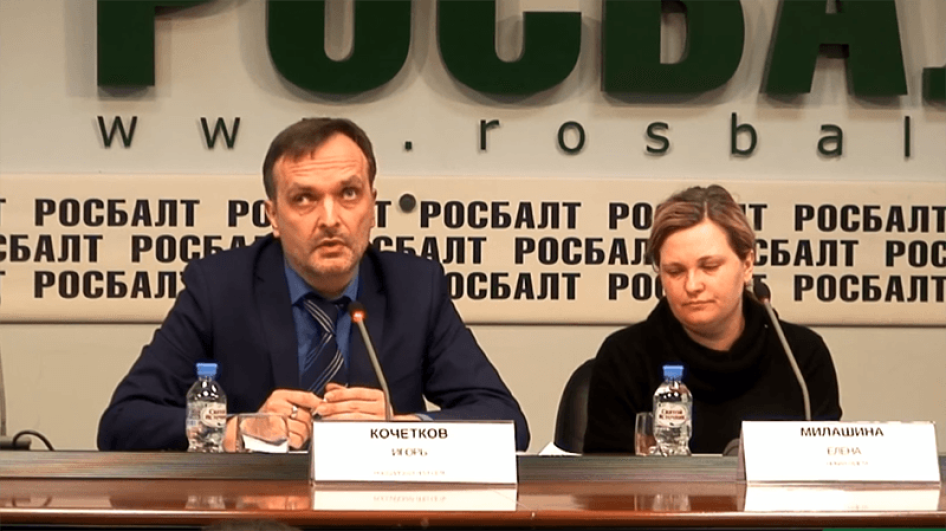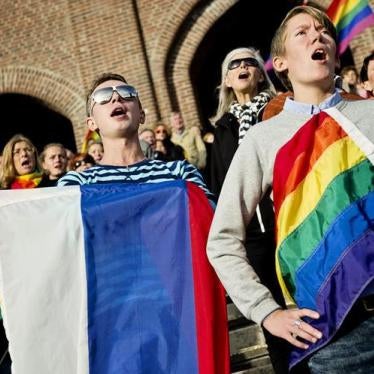One year after Chechen authorities violently carried out an anti-gay purge in an attempt to “cleanse” Chechnya of gay men, no criminal cases have been opened into the mass detentions and torture by law enforcement. No high-level Russian officials have publicly acknowledged or condemned the violence in the republic, which is part of the Russian Federation.
On Tuesday I attended a news conference led by Novaya Gazeta journalist Elena Milashina and Russian LGBT Network Director Igor Kochetkov – both of whom broke the news last year that dozens of presumed gay men had been tortured by security officials in unlawful detention facilities.
“It would be very easy to carry out an [effective] investigation if the authorities wanted to,” Milashina said, noting that investigators even failed to collect GPS location records of the mobile phones of people who alleged they had been detained.
During the anti-gay purge, Chechen security officials coerced the men – including through torture – to “out” their gay friends and acquaintances in their phone contact lists and call them. Many of the phones remained turned on during the detentions.
Investigators also need to ensure genuine protection for victims and witnesses, including of their identity. Fears of retaliation among Chechen residents for filing official complaints are well-founded. This is especially true for lesbian, gay, bisexual, and transgender (LGBT) people, who face rampant homophobia fueled by local authorities.
This fear of filing complaints “is not just a Chechen problem,” Kochetkov noted during the news conference. Throughout Russia, LGBT people facing persecution often do not file complaints due to fears of further humiliation and abuse from police. Human Rights Watch has found that Russian police consistently fail to prevent harassment and attacks or to investigate anti-LGBT crimes.
One victim of the purge, Maxim Lapunov did file an official complaint in September. To date, Russian investigators have neither launched a criminal investigation into his complaint nor provided him the governmental protection he requested.
Initially, Russian officials used the lack of official complaints and victims stepping forward to justify the absence of an effective investigation. But after Lapunov courageously took that step, there is no longer any excuse for Russian authorities not to conduct an effective, thorough, and impartial investigation.










